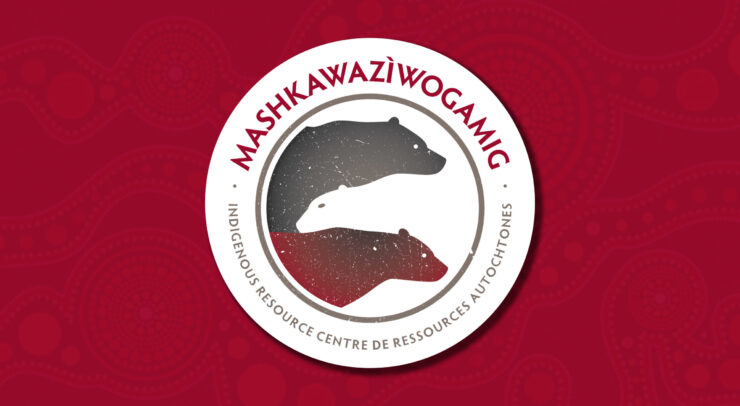Speakers talk about the history of ‘Indian hospitals,’ improving anti-racism, cultural training
The University of Ottawa’s Indigenous Resource Centre (IRC) hosted its first Zoom panel of the academic year on Oct. 22 on different perspectives of the Canadian health care system.
This particular event focused on the historical and contemporary health care segregation of the Indigenous and was brought virtually from Sudbury by U of O alumni Dr. Kona Williams — Canada’s only Indigenous forensic pathologist.
Alongside Williams were the co-authors of the book Structures of Indifference: An Indigenous Life and Death in a Canadian City, Adele Perry and Mary Jane Logan McCallum. The book discusses the struggles of Brian Sinclair, a First Nations man who died in a Winnipeg hospital, and a young First Nations nurse Meghan Eaker.
Darren Sutherland, the IRC’s Indigenous community engagement officer and facilitator, said the panel was motivated by the September death of Joyce Echaquan, an Atikamekw woman and mother of seven, who died in care while receiving treatment at a hospital in Joliette, Que. live streaming as nurses mocked and degraded her before she died.
“It’s strange how it took something like this for people to really hear what Indigenous people have known for generations,” said Sutherland to the two dozen attendees.
“Our [goal is to create a] better understanding of the history of that system, how it operates across the country, and what changes are required to ensure that the health care Canadians pride themselves on is delivered the same way to all people in the country,” concluded Sutherland.
Logan McCallum, a member of the Munsee Delaware Nation and professor of history at the University of Winnipeg, opened the discussion connecting recent Indigenous deaths to Canada’s medical segregation.
“I was part of the Brian Sinclair Working Group, which formed in response to Brian Sinclair’s death and the questions it raised for health care and for the justice system for Indigenous people in the province of Manitoba,” she said. “I sit with records that are explicitly anti-Indigenous, filled with assumptions about the brains and bodies of brown people, outrageous indifference towards Indigenous health, and hateful cost-cutting.”
Brian Sinclair, was a double amputee who died of a treatable bladder infection in 2008 at Winnipeg’s Health Science Centre after waiting for 34 hours to get care in the emergency room.
During the event, Logan McCallum continued to explain her three-part analysis of the current health care system in Canada.
“[One], all conscious bias exists in the Canadian healthcare system, it’s not just unconscious. To me [it] suggests a need for a different kind of response when incidents like this happen,” said Logan McCallum providing her analysis.
“[Two,] individualized systemic racism is connected. You can’t have one without the other. And they’re always informing each other,” she said. “Number three, [the] health care system [was] developed in a context of racial segregation through white settler priority and Indigenous oppression and silencing.”
Logan McCallum explains that the creation of two racially segregated health care systems (Canadian health care system and a federally controlled Indian health care system) have ongoing effects on today.
“[They] set a culture of Canadian healthcare as essentially non-Indigenous, as a universal system, but for non-Indigenous people, where Indigenous get treated in basement wards and in separate annexes because they’re seen as not belonging.”
She noted the recent development of the Joyce’s Principle, which is an effort to ensure that there is no discrimination, and then there is equity in healthcare, as a step towards accountability.
The second panelist Perry, a historian and gender studies professor at the University of Manitoba touched on the need to encourage the history of segregation to be discussed. She is also the senior fellow director of the Centre for Human Rights Research at St. John’s College in Winnipeg.
“We haven’t really developed a very good language to talk about the history of segregation and how it is structured [in] all of our lives, in particular, folks from settler backgrounds, including myself,” she said introducing the wider topic of segregation. “Having grown up in a Canada, which has been structured in ways that renders many aspects of Indigenous life and death functionally invisible to non-Indigenous people.”
“Although, I think in lots of ways we can see the [Truth and Reconciliation Commission of Canada] as being a really significant effort to puncture that silence.”
Dr. Williams, who is Cree and Mohawk, studied medicine at the U of O receiving her MD in 2009 and spent five more years in Ottawa doing her residence, is an anatomical and forensic pathologist at Ramsey Lake Health Centre Health Sciences North in Sudbury.
“I try to figure out how somebody died, [which] is important,” she said. “The death investigation system hasn’t exactly been very kind or understanding with Indigenous people, and there’s many stories I can tell you about lack of communication, lack of understanding, flat out racism, even within the death investigation and health care system,” she said.
Another panelist was Meghan Eaker of European and Cree ancestry and a member of the Woodland Cree First Nation. She is a registered nurse and holds a master’s of science in nursing in global health from McGill University.
Acknowledging herself as white-passing, she said she has both experienced and heard racism from non-Indigenous folks while working in medicine.
She shared examples of biases she witnessed health professionals say while she was a student. She once heard that if the child was Inuk she would diagnose him with fetal alcohol syndrome (FASD) while the non-Indigenous child with attention deficit hyperactivity disorder (ADHD). Another incident occurred when medical professionals were helping a woman who came in seeking assistance.
“There was a young Inuk woman who came in after being raped, and later on I overheard one of the white nurses, saying to her colleague ‘who would rape her she’s so ugly.’
“I think that we need to rethink how we teach the best-interest concept to health care professionals because it ends up just being white-saviorism because health professionals will go into communities and decide what’s best for children and families and patients without considering the patient’s viewpoint at all,” said Eaker.
“With more Indigenous people in a health care system that’s definitely a really good step forward.”
Williams also said what is often missing is the history of Indian hospitals or the locational relationship with Indigenous people as the recognition and incorporation of traditional medicines. She concluded that for those who bear the weight of intergenerational trauma and seeing the ongoing racism to others can be very hard to deal with but she provides her personal experiences of what keeps her going.
“Most of my family on both sides went to residential school, and they survived that so that I could be here, and that whole system was built so that people like me, didn’t exist. And yet, I’m here, and you’re here,” concluded Dr. Williams.
“At times it’s overwhelming, but if it were not for my parents, my grandparents, their grandparents what they endured it wouldn’t be possible for me to be here,” said Williams. “I think if they could go through that and survive that then I think I can get up and try to make things a little bit better because everything they dreamed of is right here, and my time is now.”
Sam Yee, a third-year student in biomedical science and Indigenous studies attended the event and said “it was super informative.” Yee, is also a University of Ottawa Students’ Union (UOSU) Board of Director member for the faculty of science.
“I thought it was really interesting that several of the panelists mentioned that Indigenous people aren’t seen as belonging in health care environments [such as] in hospitals. And there’s a lot of stereotypes that play into how Indigenous people are seen,” said Yee.
“What contributes to them not receiving adequate care is that they’re not seen as deserving of that care in that setting, which I just find incredibly sad and I don’t know how else to express my frustration.”
“It’s really easy for non-Indigenous people to say that these things don’t affect them but I think it’s very telling when people say that something doesn’t affect them or that they’d rather turn a blind eye to the fact that people are dying disproportionately in certain communities.”





